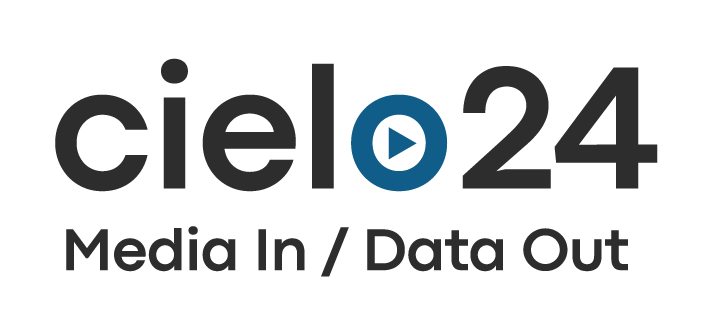Create YouTube video captions in a few easy steps. Having a thriving YouTube video channel…

How SEO Can Help YouTube Monetization
8 Tips for Better YouTube Monetization Through SEO
YouTube video is a content wonderland, with over 500 hours of video being uploaded to the site every minute. YouTube monetization is the name of the game. Step-one, to ensure that your videos are found, you have to take specific steps to boost YouTube SEO. The following tips have been gathered from YouTube experts around the web and will help you boost video discovery, engagement, and reach.
1. Metadata
Metadata is the foundation of your YouTube video SEO. Everything that you include with your video — tags, titles, descriptions, thumbnails, closed captions, playlists, links — tells YouTube where to rank your videos. It is important to use accurate tags, titles, and descriptions to ensure that your viewers know what they are clicking on and will want to stay there when they arrive.
After using metadata to form the foundation of your YouTube ranking, YouTube will switch to placing importance on user engagement signals like the number of subscribers and comments.
2. Captions and Subtitles
 Captions provide accessibility for hard of hearing audiences, which make up 15% of the population. They also provide a text component to your video which allows search engines, such as Google, to index your video. Furthermore, research has found captions to be well liked and greatly useful for all audiences.
Captions provide accessibility for hard of hearing audiences, which make up 15% of the population. They also provide a text component to your video which allows search engines, such as Google, to index your video. Furthermore, research has found captions to be well liked and greatly useful for all audiences.
Subtitles expand your audience reach to non-English speakers and allow your videos to rank in non-English searches. If you need advice on adding YouTube Captions, there is a great article here.
3. Transcription in the Description
A video transcription is another way to tell search engines what your video is about. The title and meta tags aren’t going to cut it. To truly improve YouTube monetization and SEO you need to put an accurate, formatted transcription into the description section.
This allows for robust and accurate indexing, leading to better rankings and a better experience for searchers.
4. Use Video Keywords
 Keywords are essential for SEO, but there are a few things to keep in mind to get the best SEO results for your YouTube videos.
Keywords are essential for SEO, but there are a few things to keep in mind to get the best SEO results for your YouTube videos.
First, you want to make sure your keywords are relevant and useful — it doesn’t pay to lie. You users won’t like it and neither will Google.
Second, you want to focus on video keywords (keywords that bring up YouTube video results on the first page of a Google search) so that you rank on Google in addition to YouTube.
Video keywords often resemble the following:
- How-to keywords (“how to shave a cat”)
- Reviews (“Bluehost review”)
- Tutorials (“Setting up WordPress”)
- Anything fitness or sports related (“Cardio kickboxing”)
- Funny videos (“Cute animals”)
You can easily look for video keywords by doing a search in Google. You’ll want to focus on keywords that get at least 300 searches per month to optimize your efforts.
5. Optimize for Engagement
As we mentioned earlier, user engagement is a critical factor in YouTube SEO. There are multiple signals that viewers enjoy your content: shares, comments, likes, links, subscribers, watch time, etc.
One of Google’s favorite signals is watch time. Watch time refers to the time spent watching a video and not the percent of time watched. To encourage high watch times, make sure to hook your viewer in the first 10 seconds and continue with quality content.
We discussed the advantages of captions above, but they have an additional superpower of encouraging people to spend more time watching videos. Captioning research has found that watch times double when closed captions are added to videos.
Another way to increase watch time is to always accurately title, tag, and describe your videos. If someone clicks your videos, sees the first few seconds and realizes it’s not what they thought it would be, Google won’t be happy.
6. Create Keyword-Rich Playlists
 YouTube playlists are one of the easiest ways to get more YouTube search traffic to your videos. A keyword rich playlist offers YouTube greater insight into your video’s topic, allowing for greater visibility and thus improving YouTube monetization.
YouTube playlists are one of the easiest ways to get more YouTube search traffic to your videos. A keyword rich playlist offers YouTube greater insight into your video’s topic, allowing for greater visibility and thus improving YouTube monetization.
This strategy also makes it easy for viewers to share multiple videos at once because the YouTube sharing link will include the entire playlist and not just the selected video.
7. Share in Online Communities
Online communities like Quora and LinkedIn groups are great places for sharing your content. When sharing, you will want to make sure you are being helpful and not spamming people with your links.
The value of online communities is derived from the potential for numerous high-quality views. You should look around on these sites for questions that your video could help answer and then submit thoughtful responses that suggest watching your video for more information. This brings highly engaged viewers to your channel who are likely to interact with your video and watch your other offerings.
8. Encourage Subscribing
As we’ve talked about before, user engagement is a huge factor for YouTube. Subscribing is an important engagement indicator that shows people are enjoying your videos
You can encourage viewers to subscribe to your channel by simply asking them to subscribe at the end of each video. This often includes placing a link in your video at the end to make the process easy for viewers.
For more information, contact us or request a quote here.



